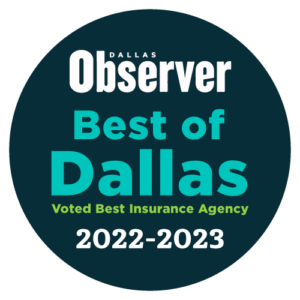“Soda,” “Pop,” “Coke,” “Cola” – regardless of the term you use, these fizzy drinks are deeply ingrained in our daily routines.
But what if cutting them out of your diet could be the wellness change you didn’t know you needed? Sodas and colas, with their super sweet taste and fizzy bubbles, might feel like a fun treat. But their effect on health is no joke.
From spiking sugar levels to other health issues, the temptation is strong, but the consequences are even stronger.
Here’s how to cut back on these drinks or eliminate them altogether.

Why Eliminate Sodas and Colas?
These drinks pack a ton of sugar, and colas are loaded with caffeine. But the [health risks](https://www.uclahealth.org/news/drinking-soda-linked-to-many-adverse-health-conditions#:~:text=Recent studies have found an,of developing Type 2 diabetes.) go beyond just what’s on the ingredients list. Drinking them regularly has been tied to issues like obesity, type 2 diabetes, heart problems, premature aging, and even kidney damage. This is quite a lineup of problems.
Best Practices for Elimination
1. Gradual Reduction
Tapering your soda intake is a lot like easing into a warm bath after a long day—it’s all about comfort and not shocking the system.
By slowly decreasing your consumption, you give your taste buds time to adapt to less-sweet flavors, making healthier drinks more enjoyable in the long run. Start by taking small steps, such as replacing one soda a day with a healthier alternative like sparkling water or unsweetened iced tea.
These small swaps not only help your body adjust to less sugar and caffeine but also make the change feel more manageable and less like a punishment.
2. Substitution with Healthy Alternatives
It’s not only about what you cut out, but also what you bring in. Water is the real hero, and there are plenty of flavors to satisfy your thirst. Herbal teas, water infused with lemon or cucumber, and the refreshing kick of coconut water are all fantastic options. And hey, if you’re craving some fizz, don’t overlook sparkling water.
3. Mindful Consumption, Savor the Drink
Ever notice you’re at the bottom of a soda quickly, and the flavor’s vanished? Becoming aware of your consumption — the sips, the flavor, the satisfaction — can help you slow down, savor and, naturally, drink less. Treat your beverages like they matter, because they certainly do when it comes to health.
4. Reading Labels and Understanding Ingredients
Knowledge is power, especially when it comes to reading what’s in those cans of soda. Familiarize yourself with the laundry list of ingredients, particularly sugar content and artificial additives.
Here’s a rundown of ingredients in soda that might have you rethinking your drink:
- High Fructose Corn Syrup (HFCS): Often the main sweetener in many sodas, HFCS is linked to obesity, diabetes, and heart disease.
- Phosphoric Acid: Used to add a tangy flavor and prevent mold and bacteria; it’s also [linked to lower bone density.](https://www.ncbi.nlm.nih.gov/pmc/articles/PMC7071508/#:~:text=Excessive intake of phosphoric acid,positively associated with obesity risk.)
- Caramel Color: This common coloring agent might add aesthetic appeal, but it’s been associated with [an increased risk of certain health conditions.](https://www.cspinet.org/article/caramel-coloring#:~:text=Caramel coloring%2C when produced with,and possibly in female rats.)
- Artificial Sweeteners: Found in diet sodas, ingredients like aspartame, sucralose, and saccharin may offer zero calories but have been linked to potential health risks, including increased appetite and risk of certain diseases.
- Sodium Benzoate: This preservative extends shelf life but can mess with our metabolic health and has been [connected to hyperactivity in children](https://journals.sagepub.com/doi/10.1177/1087054712443156#:~:text=Results%3A Sodium benzoate–rich beverage,retained after controlling for covariates.).
Knowing what lurks in your fizzy favorite is a step toward making healthier beverage choices.
Conclusion
The journey to a soda-free life is personal, with ups and downs that are different for everyone. It might be tough, but it leads to a healthier, happier you – something you won’t find at the bottom of a cola bottle. Take it easy, stay in the loop, and cheers to every sip that keeps you soda-free. Your body and your smile will appreciate it.













